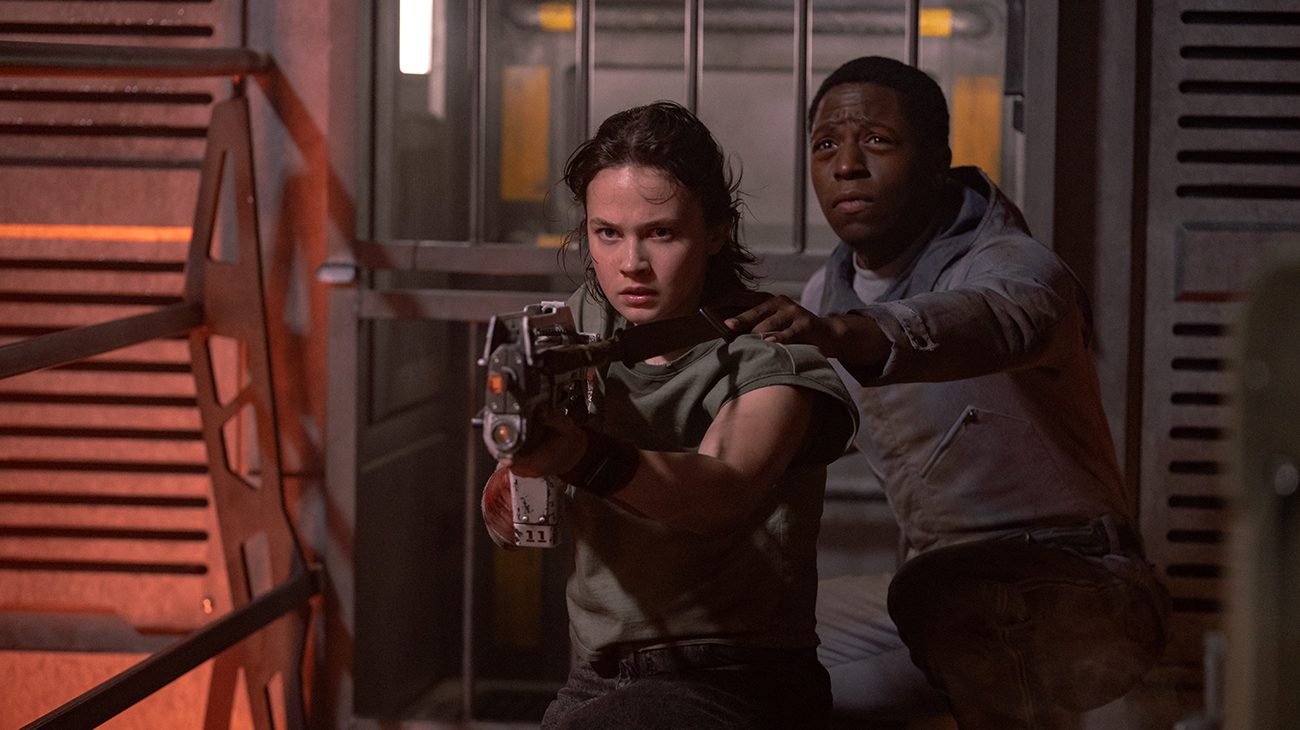
The “Alien” franchise has always been a touchstone in the sci-fi horror genre, but recent entries have left fans divided. Some longed for the pure horror of the original, while others enjoyed the deeper mythos explored in later films. With Alien: Romulus, director Fede Alvarez has chosen to steer the franchise back to its roots, delivering a visceral and claustrophobic experience that feels both fresh and familiar.
Alien: Romulus begins with a small crew of deep-space miners discovering a seemingly abandoned spaceship orbiting the outskirts of their planet. The team, led by the determined Tyler (Archie Renaux), recruits Rain (Cailee Spaeny) to enlist the help of her android brother Andy (David Jonsson), whose advanced capabilities are crucial for gaining access to the derelict vessel. However, what they find aboard is far more terrifying than they could have imagined.
As they delve deeper into the ship, they encounter a series of increasingly disturbing scenes, suggesting that whatever happened to the previous crew was both violent and inexplicable. The tension ratchets up when they discover Rook (an AI-generated Ian Holm), a mysterious figure whose origins and motives are unclear. As the crew grapples with their growing paranoia and fear, the true horror of their situation becomes apparent: they are not alone, and the alien threat they face is more deadly than ever before.
One of the most striking aspects of Alien: Romulus is its decision to strip away the grandiose themes that have characterized recent entries in the series. Gone are the existential musings on creation and the nature of life that dominated Prometheus and Alien: Covenant. Instead, Alvarez focuses on what made the original Alien so terrifying: the sheer, unrelenting horror of being hunted by a merciless creature in an isolated, inescapable environment.
The film is a masterclass in tension-building. Alvarez uses every creak of the ship, every flicker of light, to create an atmosphere of dread that permeates the entire runtime. The alien itself is terrifyingly portrayed, a return to the relentless predator that audiences feared in Ridley Scott’s original. The creature is once again a near-mythical figure, its presence felt even when it isn’t on screen. The decision to keep the focus on the immediate threat, rather than on grand ideas or expansive world-building, helps maintain the film’s intensity.
While the return to a simpler narrative structure helps recapture the terror of the original, it also raises questions about whether Alien: Romulus risks becoming too derivative. There are moments in the film that feel almost too familiar as if the filmmakers are consciously recreating beats from the 1979 classic. Some fans may find this nostalgic, but others might view it as a lack of innovation.
However, Alvarez manages to strike a balance between homage and originality. He peppers the film with enough fresh ideas and unexpected twists to keep the audience engaged. The tension is relentless, and the scares are genuine, making it difficult to criticize the film for playing it safe. In many ways, the simplicity of the narrative allows the film to focus on what truly matters in a horror movie: creating a sense of fear and suspense that keeps viewers on the edge of their seats.
One of the most intriguing elements of Alien: Romulus is the character of Rook, portrayed by an AI-generated Ian Holm. This choice to digitally resurrect Holm’s likeness is both bold and unsettling, adding a layer of eeriness to the film. Without giving away any spoilers, it’s safe to say that Rook’s presence adds a significant twist to the story.
Holm’s Rook is more than just a nostalgic callback; he represents the merging of old and new, both in terms of the franchise’s history and the film’s approach to storytelling. The character’s motivations and role within the story are shrouded in mystery, and while his appearance might be initially jarring, it ultimately serves to heighten the sense of unease that pervades the film. Alvarez handles this delicate balance well, ensuring that Rook’s presence is more than just a gimmick and instead becomes an integral part of the narrative.
Alien: Romulus is a return to form for the franchise, delivering a thrilling and terrifying experience that should satisfy both longtime fans and newcomers. Fede Alvarez’s decision to focus on the basics—claustrophobic settings, relentless tension, and a terrifying alien threat—proves to be a wise one. While the film may not explore the deeper themes of its predecessors, it more than makes up for it with its intense atmosphere and gripping story.
In the end, Alien: Romulus is a reminder that sometimes, the simplest stories can be the most effective, especially when told with such skill and precision.
About Alien: Romulus
Synopsis: While scavenging the deep ends of a derelict space station, a group of young space colonists come face to face with the most terrifying life form in the universe.
Director: Fede Alvarez
Writers: Fede Alvarez, Rodo Sayagues, Dan O’Bannon
Starring: Cailee Spaeny, David Jonsson, Archie Renaux, Isabela Merced, Spike Fearn, Aileen Wu, Ian Holm
Rated: R
Runtime: 1h 59m
Releases: August 16, 2024

he/him • aapi • intj • geek • photographer • journalist • podcaster • martial artist • foodie • dj • cinephile • gamer • traveler





























